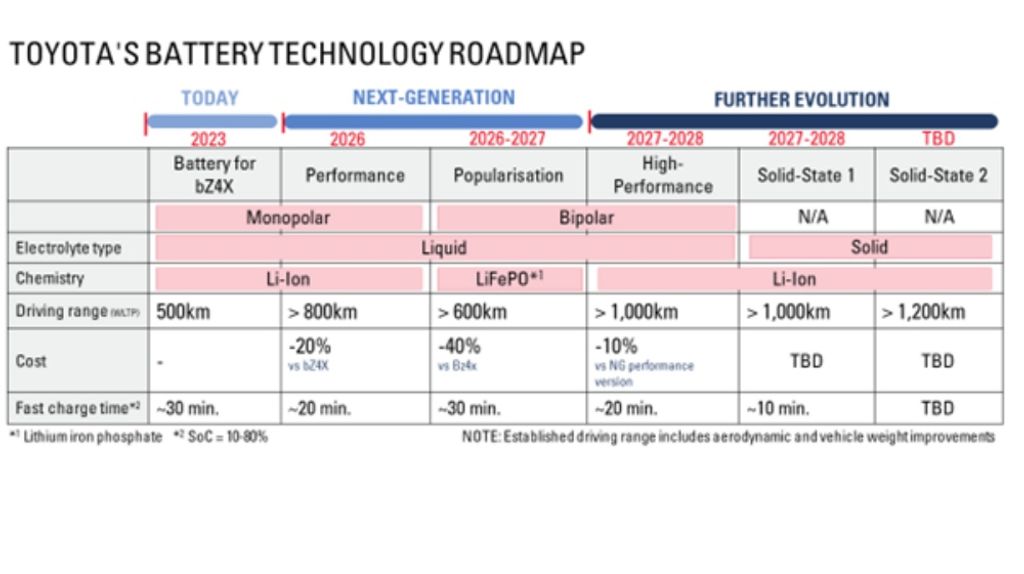Toyota is in the midst of a self-proclaimed electric revolution, investing money and manpower to launch its next generation of battery-powered cars by 2026. These will be energized by regular, liquid-based lithium-ion batteries that will supposedly offer over 497 miles of driving range on a full charge.
However, the Japanese automaker’s promise of a solid-state battery capable of over 621 miles starting in 2027 is what made some critics swallow their words after years of bashing the company’s feet-dragging approach to electrification. Now, though, it seems like the promise of care-free electric driving for hundreds of miles without recharging will only be available to very few people, considering the grand scheme of things.
It’s like the hydrogen fuel-cell revolution is back, only this time around there’s no hydrogen. Instead, the first Toyota EVs to be powered by solid-state batteries will be in the thousands. Not hundreds of thousands, not millions.
The news comes from Toyota itself, via Automotive News, which says that the partnership with petrochemical company Idemitsu will yield enough cells for just a couple thousand vehicles in the 2027-2028 timeframe.
When the two firms announced their partnership last month, they said that one of the main objectives is to lay the groundwork for “full-scale” mass production in 2030, but as Toyota puts it, Idemitsu will be able to produce several thousand tons of its sulfide solid electrolyte at the beginning of the next decade, which will be enough for more than 10,000 vehicles.
On a global scale, where the maker of the bZ4X wants to sell no fewer than 3.5 million battery electric vehicles by 2030 (Lexus included), 10,000 cars with solid-state batteries seem like a drop in the ocean.
Putting two and two together (and hoping that Toyota will stay true to its word), it only means that the vast majority of the EVs sold by the Japanese car group will be powered by more conventional, liquid-based lithium-ion batteries.
According to the firm’s roadmap, these will offer over 497 miles of range from 2026, while a high-performance bipolar variant slated to arrive in 2027-2028 will up the figure to over 621 miles. A more affordable lithium iron phosphate (LFP) version will enter the mix around 2026-2027, enabling a driving range of over 372 miles on a full charge, according to Toyota.
As for the over-745-mile solid-state battery, it’s supposed to come after 2028, but the exact timeframe for its introduction is unknown.



